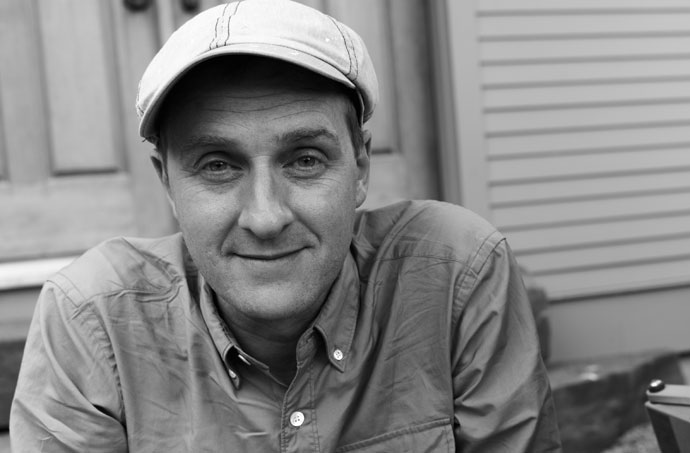The Hallmarks Of Success: Interview With Paul Budnitz, Founder Of Ello


As a writer on entrepreneurship, I’ve been grateful to interview leaders such as Mark Cuban, Barbara Corceran, and Guy Kawasaki. One entrepreneur who has always stood out is Paul Budnitz, founder and CEO of Ello, the social media platform that exploded from 90 users to processing 50,000+ new invite requests every hour. Forbes, Inc, and Business Insider dubbed Ello the anti-Facebook with its staunch user-privacy and ad-free approach.
While the success of Ello seemingly took the world by storm, those closest to Paul Budnitz were less surprised. The adage, “It takes ten years to become an overnight success” sums him up well.
He’s been described as a “creative genius” by investors; one of his earlier ventures, Kidrobot, an art-toy emporium, went from two employees to 90, and from $300,000 in sales to more than $15 million.
His next venture was into a field he knew little about — bicycle design and manufacturing. He had a vision of taking the high standard, quality, and price of professional racing bikes, and applying them to everyday city bikes. It was scoffed at by many. Budnitz told Business Insider, “I remember this executive at Shimano said to me, ‘Paul, what are people going to do, they’re going to ride a $6,000 bike to the supermarket?’ And I said, ‘Yeah, they’re already driving $75,000 cars to the supermarket.’”
Paul recently shared with Wall Street Insanity the insights and advice which has shaped his successes over the years:
Pursue what’s beautiful and meaningful.
Regardless of the work, Paul’s approach has been the same, “I’ve always wanted to simply make something beautiful that I care about.”
We’re all drawn to beauty, whether that’s in nature, music, people, or products. In a culture that champions pragmatism, esthetics is often ignored. But Paul has made a conscious effort to deliver products that not only are functional, but beautiful.
We treat what is beautiful with value, so when you provide something of beauty, you are also adding value.
Put people first.
Ello is listed as a Public Benefit Corporation, a legally binding charter that states the company is “not required to maximize shareholder value.” That’s startling, considering Ello closed out its Series-A with $5.5 million in venture capital funding. But Paul explains that the interest came because the investors bought into the vision, not just the product. And that vision was to put people first.
By taking the focus off the bottom line, they’ve been able to put their energy into maximizing the user’s experience. It’s putting people above profits, and in doing so, they’re able to gain something money can’t buy — trust.
Entrepreneurial vulnerability.
Never let success get to your head. Paul says with passion: “I show up every day at work vulnerable to the reality that my business could tank and fall apart on any day.”
Complacency is the sneaky cause of a downfall in the lives of many entrepreneurs, especially when their companies grow. A mindset of vulnerability and humility will ensure that your work and success never become stagnant. It keeps you open to learning new ideas, and motivated to keep innovating.
Finally, I asked Paul these three questions:
1. What’s the best piece of advice you’ve ever received?
“People have a tendency to play to their strengths and hide their weaknesses. Genpo Roshi, who is an American Zen Master living in Utah, once said that when we bury the parts of ourselves that we don’t like, those negative aspects of our personalities eventually come back to haunt us. Our weaknesses are always there, whether we like it or not.
If that’s true, why not use both our strengths and weaknesses to our advantage? Then we’re really taking advantage of who we are as a whole, and not wasting energy trying to be (or hide) who we aren’t.
For me, that’s meant that the things I’m terrible at are kind of a hidden superpower. I’ve learned to ask for help from a beginner’s perspective, without being ashamed of that — even if I’m the one who is running the company, and I’m asking for help from an intern. Actually, my 23-year-old intern at Ello is now running Ello’s customer service department, and doing things that I could never do myself.
If I hadn’t been mature enough to admit that, I couldn’t have seen her brilliance. I’d have been too proud. That would have been a great waste — for her, for me, and for the company.
2. Your biggest failure, and lesson learned?
I don’t see anything that I do as a failure (or a success). I know that sounds cheesy, but it’s really how I operate. It’s all just another step on a road that never ends — there’s always a disaster followed by things working out fairly well, followed by another disaster. It’s a cycle. After a while, you learn to look out for the disasters when things are going well, and take heart when you’re at the bottom that those things will reverse eventually, too.
A few years ago I was running Kidrobot, now I own Budnitz Bicycles, and I am very busy with Ello. I don’t know what I’ll be doing in five years, but it will be all connected. One thing flows into another.
3. What is your definition of success?
Being willing to lose it all, if that’s what it takes.
If you aren’t open to that, you’ll never be able to take the risks necessary to make something truly amazing.









































